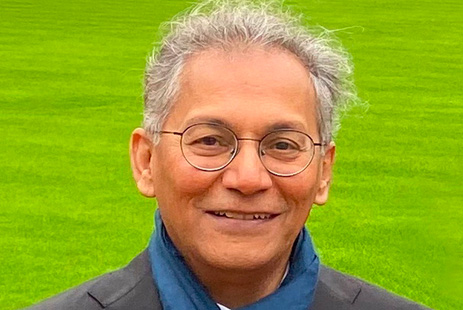Finally, a BBC chairman who knows about broadcasting

Opinion
The appointment of Samir Shah as BBC chairman should be welcomed. But wouldn’t he and director-general Tim Davie be even more effective if they swapped roles?
It has been a big week for the BBC, with no less than three significant decisions being made.
Or maybe those should be seen as colourful and potentially damaging opinions involving the Corporation, which came from the Culture Secretary Lucy Frazer.
The decisions ranged from selecting, at last, a new person to chair the BBC, the scale of the licence fee over the next four years, and attacks on the principle that licence fee evasion should be a criminal offence.
Only one of the three could possibly help the BBC in its mission to be a universally funded public service broadcaster serving all the people of the UK.
Shah: the DG we should’ve had?
The appointment of Samir Shah, subject to political confirmation, is to be entirely welcomed.
It marks the end of a trend, which has had mixed outcomes to say the least, to appoint retired bankers with the right political connections and absolutely no knowledge of broadcasting, to chair the BBC.
Shah has spent a lifetime in broadcasting in commercial television, as former head of television current affairs at the BBC, and for most of his working life as chief executive and owner of award-winning independent Juniper.
In another lifetime, Shah was seen as a bit of an apparatchik for the occasionally soulless regime of the now Lord Birt. But if that can’t be forgiven after so many years nothing can.
The bigger picture is the Government has done something seriously radical — appointing someone who knows about broadcasting, and current affairs, in particular, to chair the BBC.
Above all, he understands the point and importance of public service broadcasting and will be committed to its survival in a difficult competitive environment.
If Shah wasn’t already 71, you could even fantasise about a possible job swap in future after a respectable interval.
Shah, who knows about news and the endless pitfalls of broadcasting, would have made an excellent director-general, the de facto editor-in chief of the BBC.
This would clear the way for Tim Davie, whose background is in marketing rather than journalism, to become an excellent chairman of the organisation.
Dangers of decriminalising the licence fee
Back in the real world, is it too late for Shah to try to reverse the wretched decision to eviscerate Newsnight, dispense with its journalists and turn it into another chat show?
The poverty of that decision was exposed on Monday evening with the sort of story few others do — an exposure of how time is running out for 200 special Afghan forces who fought with the British and were paid by the British, but are due to be returned from Pakistan to Taliban control. They face imprisonment at the very best.
Perhaps not quite so much praise for Frazer who, in effect, reneged on an agreement made by her predecessor. Nadine Dorries, who froze the licence fee for two years and then ruled that it should rise in line with inflation for the rest of the Charter period.
Yes, the licence fee will rise by £10.50 a year, but that resulted from a bit of cherry-picking on inflation rates.
Instead of the conventional, and expected 12-month average, Frazer chose the inflation rate in September which cut the licence fee increase by £4.
Fine for consumers, but it will cost more job cuts at the BBC where media inflation tends to outpace general inflation in the economy. There is also the small matter that part of that inflation was unnecessarily caused by the policies of this Government — Brexit and the mercifully temporary activities of Liz Truss.
The greatest damage Lucy Frazer could do to the BBC is to decriminalise evasion of the licence fee. The Culture Secretary sounds plausible when she says it is “morally indefensible” to threaten people with jail for not paying the licence fee.
Up to a point. You can’t face jail for non-payment of the licence fee only for non-payment of any fines imposed.
In 2021 and 2022 no-one went to prison for non-payment of licence fee fines.
David Cameron, now Lord Cameron and Foreign Secretary, can remind Frazer that he set up an inquiry into the issue by David Perry QC who found there was no compelling case for change.
Making the licence fee voluntary like a commercial transaction would destroy the entire concept of a universal public service broadcaster paid for by everyone.
If the Culture Secretary is concerned about the effect on the poor and the vulnerable she can tackle it through social services.
The best way to deal with this and many other issues facing future BBC funding is to have a thorough review of alternatives that includes variants of the status quo.
Simple because of the time such investigations take, it will almost certainly be a matter for the next Government rather than Lucy Frazer.
 Raymond Snoddy is a media consultant, national newspaper columnist and former presenter of NewsWatch on BBC News. He writes for The Media Leader on Wednesdays — read his column here.
Raymond Snoddy is a media consultant, national newspaper columnist and former presenter of NewsWatch on BBC News. He writes for The Media Leader on Wednesdays — read his column here.




